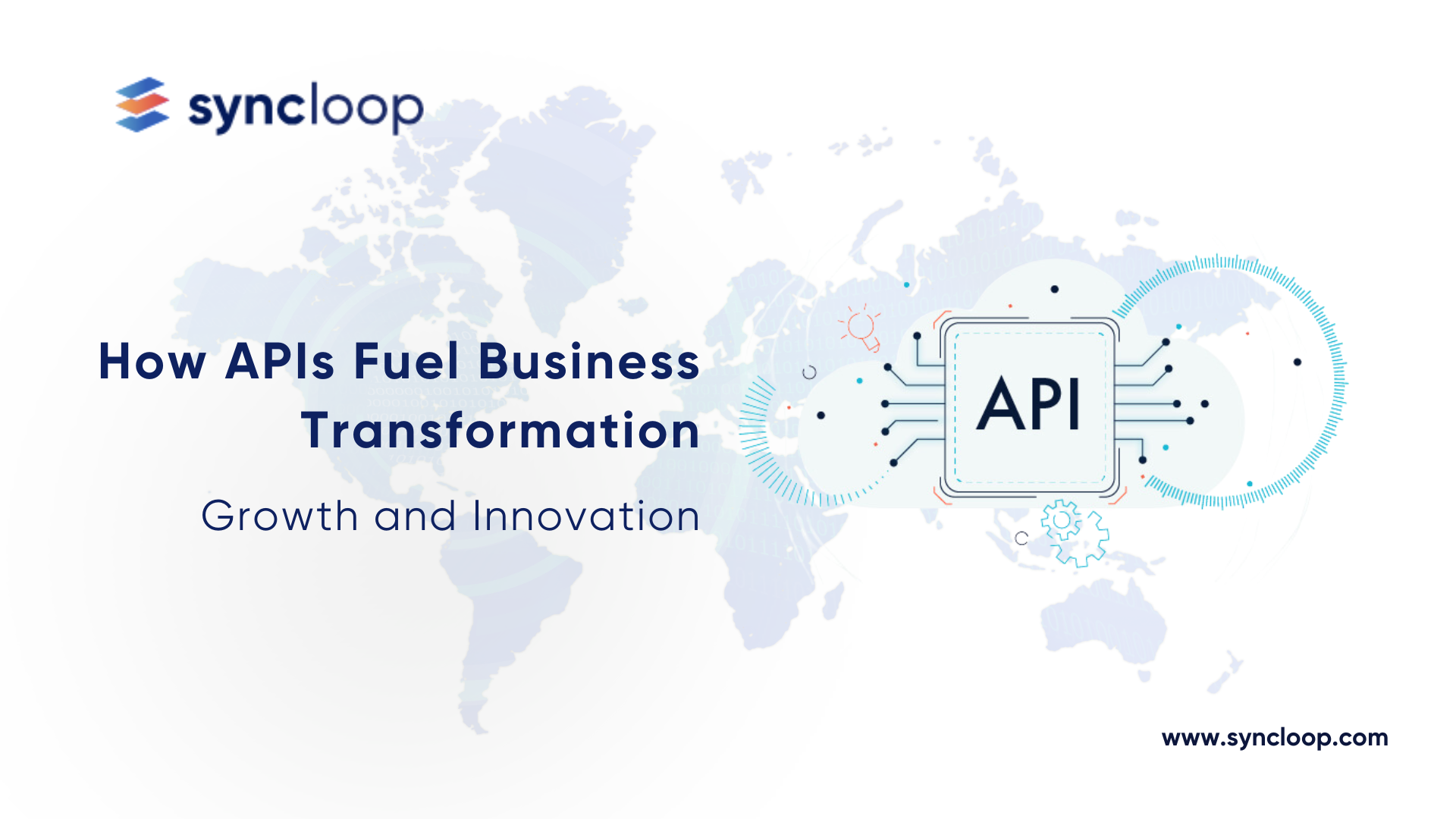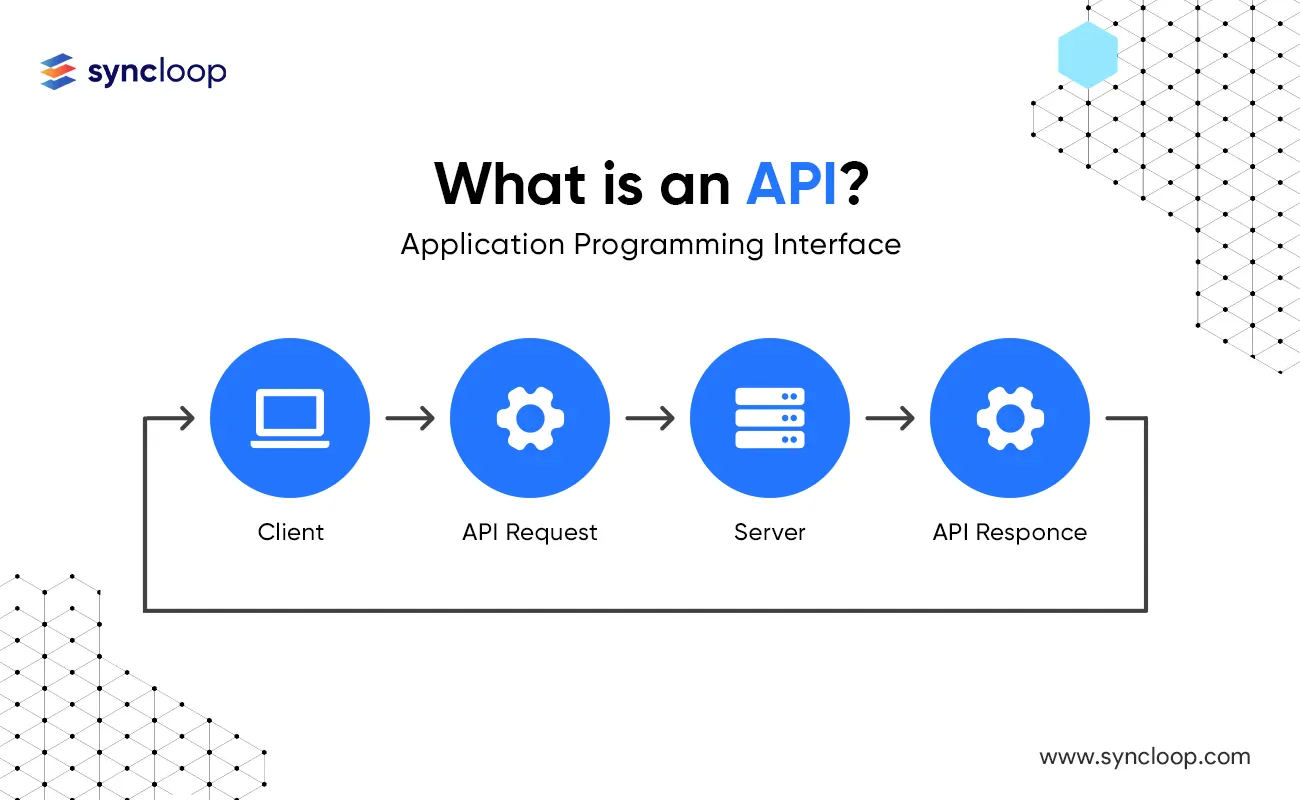Growth and Innovation: How APIs Fuel Business Transformation
Posted by: Deepak | May 02, 2024

Categories: Business APIs, Digital Transformation, API Strategy
In today's digital landscape, APIs (Application Programming Interfaces) have become the driving force behind interconnected applications and services. They act as the bridge between disparate systems, enabling seamless data exchange and functionality access. By strategically leveraging APIs, businesses can unlock a wealth of opportunities for growth and innovation. This blog delves into the transformative power of APIs, exploring how they drive business expansion, foster innovation, and empower organizations to stay ahead of the curve.
The Business Benefits of API-Driven Strategies
APIs offer a multitude of benefits that translate into tangible business advantages:
- Enhanced Customer Experience: APIs enable the creation of personalized and engaging user experiences. Businesses can integrate with third-party services like payment gateways, social media platforms, and logistics providers to offer seamless functionalities within their applications.
- Accelerated Time-to-Market: APIs allow for faster development and deployment of new features and functionalities. By integrating with existing services or leveraging pre-built APIs, businesses can reduce development time and quickly deliver innovative solutions to market.
- Increased Revenue Streams: APIs can open up new revenue streams through monetization models like subscription fees, pay-per-use pricing, or data access charges.
- Improved Operational Efficiency: APIs streamline internal processes by automating data exchange between different systems. This reduces manual tasks, minimizes errors, and improves overall operational efficiency.
- Enhanced Agility and Scalability: APIs enable businesses to adapt to changing market demands. By integrating with external services, they gain access to specialized functionalities and resources, allowing them to scale their operations without significant infrastructure investments.
Statistics highlight the growing adoption of API-driven strategies. A 2023 report by MuleSoft reveals that 82% of organizations believe APIs are critical to their digital transformation initiatives, showcasing the increasing recognition of their transformative potential.
Industry-Specific Use Cases: APIs in Action
Across various industries, APIs are driving innovation and growth:
- E-commerce: E-commerce platforms leverage APIs to integrate with payment gateways, logistics providers, and product data aggregators. This facilitates a seamless shopping experience for customers and streamlines order processing and fulfillment.
- FinTech: Financial institutions utilize APIs for secure data exchange between internal systems, third-party services like credit bureaus, and customer applications. This enables features like online banking, mobile payments, and personalized financial advice.
- Healthcare: APIs connect healthcare providers, patients, and medical devices, facilitating data exchange for remote patient monitoring, personalized healthcare plans, and improved care coordination.
Latest Tools and Technologies for API-Driven Innovation
The API landscape is constantly evolving, offering new tools and technologies to further empower businesses:
- API Design Tools: Tools like Swagger and OpenAPI allow for the creation of clear and comprehensive API documentation, promoting collaboration and developer adoption.
- API Management Platforms: Platforms like Apigee, Kong, and AWS API Gateway provide comprehensive solutions for managing API lifecycles, including security, versioning, analytics, and developer portals.
- Low-Code/No-Code Development Platforms: These platforms enable even non-technical users to build simple APIs, democratizing API development and fostering citizen integration initiatives within organizations.
- Microservices Architecture: Breaking down applications into smaller, independent microservices facilitates API design and enables easier scaling and integration with external services.
Considerations and Potential Challenges
While APIs offer immense benefits, there are also some considerations to keep in mind:
- Security Concerns: APIs can be vulnerable to security threats like unauthorized access, data breaches, and API abuse. Implementing robust security measures like authentication, authorization, and encryption is crucial.
- Complexity Management: Managing a complex API ecosystem with numerous integrations can be challenging. Establishing clear governance policies and monitoring practices is essential.
- Developer Experience: Providing a well-documented and user-friendly API experience is crucial for attracting and retaining developers.
Conclusion
APIs are the cornerstone of a modern, connected business landscape. By strategically leveraging APIs, organizations can unlock new revenue streams, enhance customer experiences, and drive innovation at an accelerated pace. By understanding the benefits, challenges, and latest tools available, businesses can build a robust API strategy that fuels continuous growth and positions them for success in the digital age. As the API ecosystem continues to evolve, embracing this technology will be paramount for organizations seeking to thrive in the ever-changing digital landscape.
By embracing a strategic API-driven approach, businesses can unlock a world of possibilities:
- Foster a Culture of Innovation: APIs empower organizations to experiment with new ideas and services quickly and efficiently. This fosters a culture of innovation, allowing them to stay ahead of the competition.
- Build a Robust Digital Ecosystem: APIs enable the creation of interconnected ecosystems where internal systems, external services, and partner applications seamlessly collaborate. This creates a powerful network that drives agility and adaptability.
- Unlock the Power of Data: APIs facilitate the exchange and analysis of data across various systems, providing valuable insights for informed decision-making and driving data-driven strategies.
As the digital landscape continues to evolve, APIs will undoubtedly play an increasingly pivotal role in business success. By understanding their transformative potential, implementing best practices, and leveraging the latest tools, organizations can harness the power of APIs to achieve sustainable growth, foster innovation, and thrive in the ever-changing digital world.
Back to Blogs

